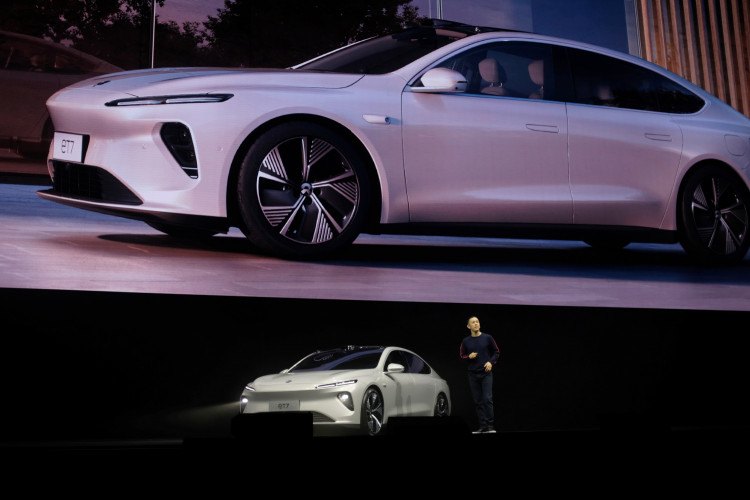Nio Inc., the Shanghai-based electric vehicle (EV) manufacturer, is grappling with a widening financial chasm amidst a fiercely competitive market in China, the world's largest arena for electric vehicles. The company's annual loss ballooned to 20.7 billion yuan ($2.9 billion) in the past year, despite posting stronger-than-anticipated sales in the fourth quarter of 2023.
Chief Financial Officer Steven Feng announced a strategy focusing on prioritizing business objectives, enhancing system capabilities, and refining cost management to navigate through 2024. Despite a slight improvement in vehicle margins to 11.9% in the last quarter, the figures still fell short of analyst predictions. The absence of major product launches for 2024 contrasts starkly with competitors like Xpeng Inc. and Li Auto Inc., who have begun to see profitability and are expanding their product lines aggressively.
Nio's anticipated entry into the mass-market segment with its Alps brand, aimed at competing directly with Tesla's locally produced models, is seen as a potential turning point. With an expected production of about 10,000 units per month, Alps' first model is positioned to challenge Tesla's Model Y SUV with a 10% lower manufacturing cost, according to CEO William Li. This move is pivotal for Nio, which has previously concentrated on premium SUVs and sedans, as it strives to reclaim market share and improve financial health.
The company's delivery forecast for the first quarter has been adjusted downward, signaling a cautious approach amid an ongoing price war in China's EV sector. Gross margins and revenue projections for the current quarter have also been revised, reflecting the challenges ahead.
Nio's financial struggles have prompted significant capital injections, including a recent $2.2 billion investment from CYVN Holdings LLC, an entity linked to the Abu Dhabi government, which now holds a 20.1% stake in Nio. These funds are crucial for sustaining operations and funding strategic initiatives such as the development of the Alps brand and an expansion into international markets like the United Arab Emirates.
To counterbalance its financial woes, Nio is making operational adjustments, including workforce reductions and the potential divestiture of non-core businesses. The company is also doubling down on its innovative battery-swap technology, which offers a solution to common concerns about EV range and charging times by enabling quick battery exchanges.
Despite these efforts, Nio's shares have plummeted by 41% this year, reflecting investor concerns about its long-term viability in a market that is increasingly saturated and price-sensitive. The company's strategy to penetrate lower-tier cities with its charging and battery swap infrastructure, coupled with a focus on the Chinese market, underscores its commitment to regaining its footing in the EV landscape.
As Nio embarks on this critical phase, the industry watches closely to see if its strategic shifts and the introduction of the Alps brand can reverse its fortunes and position it as a formidable contender in the global EV race.





